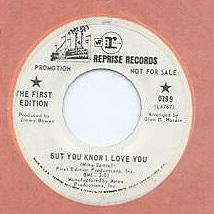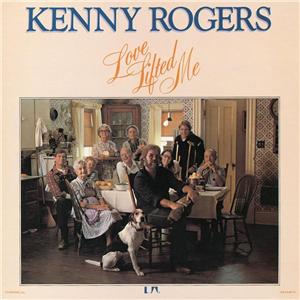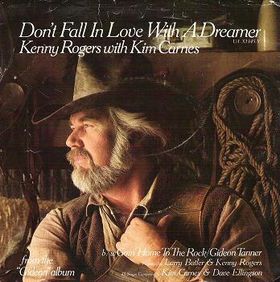Related Research Articles

Contemporary Christian music (CCM), also known as Christian pop, and occasionally inspirational music, is a genre of modern popular music, and an aspect of Christian media, which is lyrically focused on matters related to the Christian faith and stylistically rooted in Christian music. Originating in the United States, it was formed by those affected by the 1960s Jesus movement revival who began to express themselves in other styles of popular music, beyond the church music of hymns, gospel and Southern gospel music that was prevalent in the church at the time. Initially referred to as Jesus music, today, the term is typically used to refer to pop, but also includes rock, alternative rock, hip hop, metal, contemporary worship, punk, hardcore punk, Latin, electronic dance music, R&B-influenced gospel, and country styles.

Contemporary worship music (CWM), also known as praise and worship music, is a defined genre of Christian music used in contemporary worship. It has developed over the past 60 years and is stylistically similar to pop music. The songs are frequently referred to as "praise songs" or "worship songs" and are typically led by a "worship band" or "praise team", with either a guitarist or pianist leading. It has become a common genre of music sung in many churches, particularly in charismatic or non-denominational Protestant churches with some Roman Catholic congregations incorporating it into the Mass as well.
"The First Nowell", modernised as "The First Noel", is a traditional English Christmas carol with Cornish origins most likely from the early modern period, although possibly earlier. It is listed as number 682 in the Roud Folk Song Index.
"Ruby, Don't Take Your Love to Town" is a song written by Mel Tillis about a paralyzed veteran who lies helplessly as his wife "paints up" to go out for the evening without him; he believes that she is going in search of a lover. As he hears the door slam behind her, he claims that he would murder her if he could move to get his gun, and pleads for her to reconsider. A line in the song about a "crazy Asian war" and the time of the song's release led to the assumption that the song was about a veteran of the Vietnam War, though this was never stated in the lyrics. However, Tillis stated that the song was about a veteran of World War II.

"But You Know I Love You" is a song written by Mike Settle, which was a 1969 pop hit for Kenny Rogers and The First Edition, a group that included Settle and Kenny Rogers. The song also became a major country hit by Bill Anderson in 1969. In 1981, a cover version of "But You Know I Love You" by singer Dolly Parton topped the country singles charts.
"Mary, Did You Know?" is a Christmas song addressing Mary, mother of Jesus, with lyrics written by Mark Lowry in 1984, and music written by Buddy Greene in 1991. It was originally recorded by Christian recording artist Michael English on his self-titled debut solo album in 1991. At the time, English and Lowry were members of the Gaither Vocal Band, and Greene was touring with them. The song reached number six on CCM Magazine's Adult Contemporary Chart. In 1993, the second singer to record the song was Country singer Kathy Mattea on her album Good News, which won the Grammy Award for Best Southern, Country or Bluegrass Gospel Album. Lowry would record the song several times himself, most notably with the Gaither Vocal Band on their 1998 Christmas album, Still the Greatest Story Ever Told.
"I'll Fly Away" is a hymn written in 1929 by Albert E. Brumley and published in 1932 by the Hartford Music company in a collection titled Wonderful Message. Brumley's writing was influenced by the 1924 secular ballad, "The Prisoner's Song".

"Coward of the County" is a song written by Roger Bowling and Billy Edd Wheeler and recorded by American country music singer Kenny Rogers. The song was released in November 1979 as the second and final single from Rogers' multi-platinum album Kenny. It became a major crossover hit, topping the Billboard Country chart and reaching number three on the Hot 100 chart; it also topped the Cash Box singles chart and was a Top 10 hit in numerous other countries worldwide, topping the chart in Canada, the UK and Ireland, where it remained at number one for six consecutive weeks.

"She Believes in Me" is a song recorded by American country music singer Kenny Rogers. It was released in April 1979 as the second single from his 1978 album The Gambler. The song was written by American singer-songwriter Steve Gibb who first released his version as a 7" single in 1978. A version by T. G. Sheppard appears on his 1978 album Daylight, released a month before Rogers' album.
"How Great Thou Art" is a Christian hymn based on an original Swedish hymn entitled "O Store Gud" written in 1885 by Carl Boberg (1859–1940). The English version of the hymn and its title are a loose translation by the English missionary Stuart K. Hine from 1949. The hymn was popularised by George Beverly Shea and Cliff Barrows during Billy Graham's crusades. It was voted the British public's favourite hymn by BBC's Songs of Praise. "How Great Thou Art" was ranked second on a list of the favourite hymns of all time in a survey by Christianity Today magazine in 2001 and in a nationwide poll by Songs Of Praise in 2019.

"My Song Is Love Unknown" is a hymn by Samuel Crossman, written in 1664. It is predominantly used as a hymn for Good Friday.

"Hail, Queen of Heaven, the Ocean Star" is a Marian hymn written by Father John Lingard (1771–1851), a Catholic priest and historian who, through the works of William Cobbett, helped to smooth the passage of the Catholic Emancipation Act in England.

"'Tis So Sweet to Trust in Jesus" is a Christian hymn with music by William J. Kirkpatrick and lyrics by Louisa M. R. Stead. The lyrics were written in 1882. They appeared in Stead's Songs of Triumph.

Love Lifted Me is the first solo studio album by Kenny Rogers for United Artists Records, released in 1976. This is Rogers' first solo effort following the break-up of The First Edition earlier that year.

"Don't Fall in Love with a Dreamer" is a song recorded by American singers Kenny Rogers and Kim Carnes, the latter of whom wrote the song with her husband David Ellingson. It was released in March 1980 as the first single from Rogers' album Gideon. It was also recorded in Spanish as "No Te Enamores De Un Loco". The song was the only duet from the album Gideon.
"The Summons", also called "Will You Come and Follow Me", is a Scottish Christian hymn. It was written by John L. Bell in 1987.

"Savior's Shadow" is a song recorded by American country music artist Blake Shelton, taken as the second single from his tenth studio album, If I'm Honest (2016). It was released digitally on April 8, 2016, before being sent to Christian and country radio on April 11. The track was written by Shelton, Jessi Alexander and Jon Randall, while production was handled by Scott Hendricks.
"Help Me" is a song written by Larry Gatlin. A country gospel song, the lyrics tell the story of a world-weary and tired man pleading for guidance and reassurance from God. Gatlin performed the song at the funerals of both June Carter and Johnny Cash and dedicates the song to them during every performance.
"Use This Gospel" is a song by American rapper Kanye West from his ninth studio album, Jesus Is King (2019). The song features guest appearances from hip hop duo Clipse and jazz saxophonist Kenny G. It was produced by West, Angel Lopez, DrtWrk, Federico Vindver, and Timbaland, with co-production from BoogzDaBeast and Pi'erre Bourne. The song was recorded as a new version of the leaked track "Law of Attraction", which West came up with in a freestyle session. Clipse's feature on the song marked their reunion, after West requested for a collaboration. A gospel number with a maximalist style, it samples Two Door Cinema Club's "Costume Party" and includes a saxophone solo from Kenny G.

Hymn of Heaven is the eighth studio album by American contemporary Christian singer Phil Wickham. It was released on June 25, 2021, by Fair Trade Services and Columbia Records. The album features a guest appearance by Brandon Lake.
References
- ↑ "'Love lifted me' — let it lift you". The Jackson Sun. March 25, 2016. Retrieved May 2, 2021.
- 1 2 "Love Lifted Me". The United Methodist Church. Retrieved May 2, 2021.
- ↑ Charles Johnson, Mary Ann Thorson (1983). The History of Hymn Singing as Told Through One Hundred & One Famous Hymns. C. Halberg. p. 210.
- ↑ "'Love Lifted Me'". Hymnary.org. Retrieved May 2, 2021.
- ↑ Whitburn, Joel (2017). Hot Country Songs 1944 to 2017. Record Research, Inc. pp. 310–311. ISBN 978-0-89820-229-8.
- ↑ "Kenny Rogers Chart History (Hot Country Songs)". Billboard.
- ↑ "Kenny Rogers Chart History (Hot 100)". Billboard.
- ↑ Stowell, Laurel (8 December 2012). "Expertise brings honorary degree". Wanganui Chronicle. Retrieved 17 May 2014.